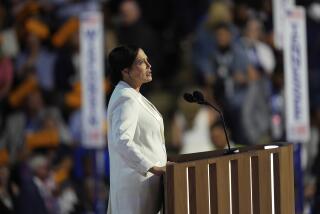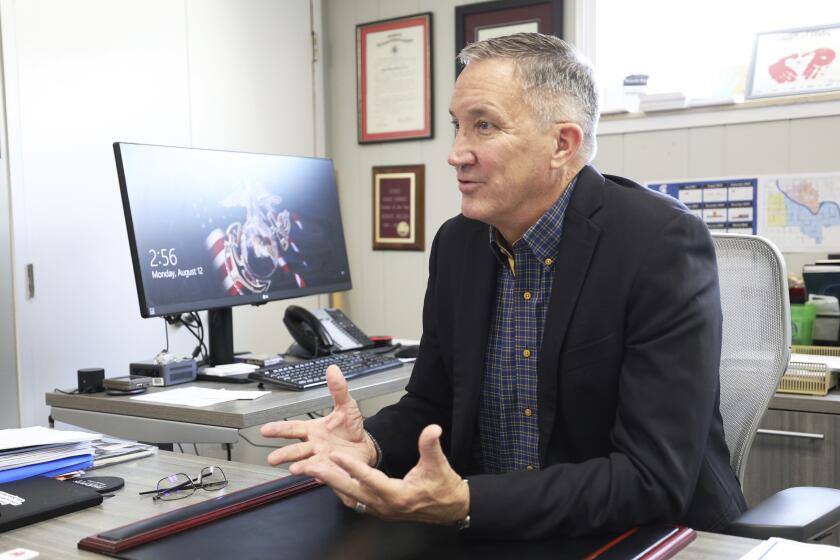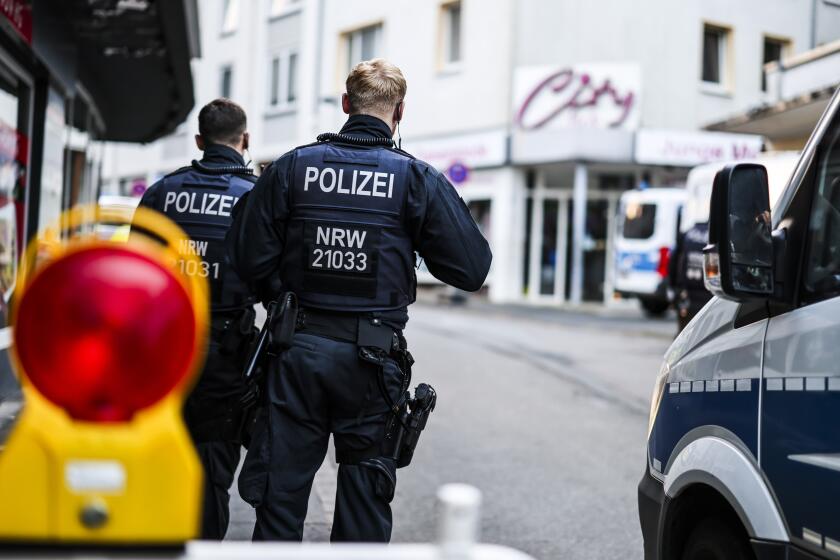Britain’s Faceless Spy Force
The British government is considering legal proceedings against several American newspapers, including the Washington Post, for publishing details of an alleged plot by British intelligence to destabilize the government of Harold Wilson in the mid-1970s.
If the British do take action in American courts, this will be another odd wrinkle in what has become one of the most bizarre spy scandals to hit Britain since Kim Philby defected to the Soviet Union in 1963.
Any suits against U.S. media will produce new questions about the operations of the Security Service (also know as MI5), Britain’s counterespionage organization--and new calls for a system of oversight.
Unlike the United States, there has never been any form of public accountability for Britain’s intelligence services. Where the Central Intelligence Agency is listed in the telephone book, there are no numbers for MI5 or its sister organization, the Intelligence Service, known as MI6. The identities of senior officers are unknown to the general public and publication of their names generally brings instant threat of government legal action.
Recently, Britain acknowledged the existence of MI5 but MI6 still does not officially exist (despite a multistory headquarters on the south bank of the Thames in London). No budgets are ever revealed and the intelligence services are not publicly answerable for any of their actions. Successive prime ministers, Labor and Conservative, have refused comment on working successes or failures of the services, unwilling to break long-standing silence.
The current furor began last year when the Security Service learned that one of its former employees, Peter Wright, was planning to publish his memoirs, “Spycatcher.” Wright, in retirement in Australia, had become increasingly embittered by what he felt was a raw deal over his pension; he decided to earn needed cash by exposing his former employers.
The British, citing the Official Secrets Act, immediately banned the book in the United Kingdom, and, without even reading the manuscript, sued Wright in the Australian courts to prevent publication there. They argued that Wright had signed an agreement not to publish anything about his security work and that publication could damage Britain’s interests. The New South Wales court disagreed and threw out the case; the British government is appealing.
Meanwhile, copies of the manuscript have been sneaked into Britain and a number of papers have published extracts. In each case the British attorney general has sued the newspaper concerned for contempt of court; five cases are pending.
Wright claims that he and his colleagues illegally “bugged and burgled” their way around Britain and that a group of 30 MI5 officers were behind a plot to overthrow the government of Prime Minister Harold Wilson. They were convinced that Wilson was a communist sympathizer and that many of his friends were Soviet supporters. In one of the last acts before his recent death, James Jesus Angleton, the former CIA counterespionage chief, confirmed that the CIA had passed information to MI5 about Wilson at the request of the British; this, too, is denied by MI5.
These allegations of treason were investigated 10 years ago and found to be without foundation. A 1987 internal investigation carried out by the director general of MI5, Sir Anthony Duff, also found no evidence of any wrongdoing.
Current accusations and denials have been fueled by two other people with connections to MI5, a convicted murderer and a man with a history of mental problems. For lack of better information, the media have eagerly repeated their unsubstantiated allegations of: dirty dealing in Northern Ireland; back-street murders by psychopathic secret agents and the framing of public officials. The momentum is such that no denials--by either Prime Minister Margaret Thatcher or by the Security Service--are believed.
New ammunition for those demanding reform came last month when Britain learned that Sir Maurice Oldfield, widely believed the model for John le Carre’s George Smiley, was a practicing homosexual. A former head of MI6 and chief of security in Northern Ireland, Oldfield had consistently hidden his homosexuality.
During the current general election campaign there will be repeated demands for a new inquiry into allegations about MI5. The prime minister will continue to resist because she believes that intelligence work should remain free from public scrutiny.
Yet the Security Service itself would welcome such an investigation, if only to help improve morale and restore some public confidence. Thatcher’s posture will bring her into increasing conflict with her own intelligence community. Many members of both MI5 and MI6 realize that they cannot continue to operate without some form of oversight, from either an independent inspector general or a parliamentary committee.
Senior officers in the Security Service expect Wright’s book to be published, if not in Britain than in the United States, followed by more months of public debate and renewed calls for a far-reaching investigation into the workings of the Security Service.
Deep investigation is viewed with horror by both the prime minister and the intelligence community, fearing that their most closely guarded secrets will be exposed to public scrutiny, making it impossible for them to operate effectively. Public pressure, however, will ensure that the faction in MI5 arguing for some changes--changes for the good of the service--will prevail.
Parliament would like to see an oversight committee, with members drawn from its own ranks, to examine the legality of Security Service actions. The intelligence services will then have to admit their own existence and be prepared to defend--publicly--their actions when necessary. Such reforms are long overdue.
More to Read
Sign up for Essential California
The most important California stories and recommendations in your inbox every morning.
You may occasionally receive promotional content from the Los Angeles Times.






